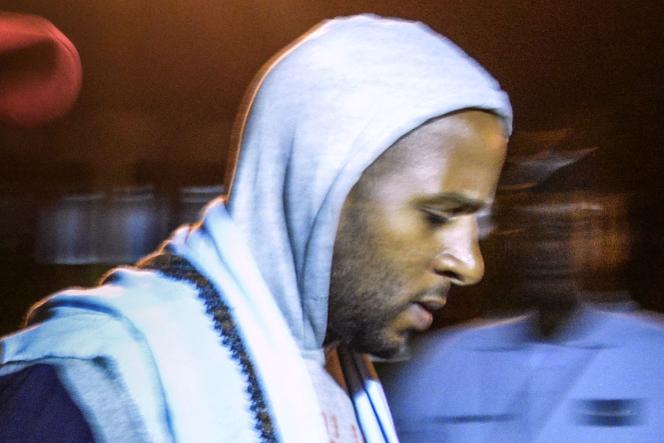


The last time Peter Cherif spoke before a criminal court was on October 23, 2020, at the trial for the January 2015 attacks on the satirical newspaper Charlie Hebdo and one of the kosher supermarket chain Hyper Cacher's stores. The Parisian jihadist was then heard as a simple witness by videoconference from the Bois-d'Arcy prison, west of Paris. After reciting the opening surah of the Quran in Arabic, he said: "I've been forced to come here to testify about a case I have nothing to do with, and I won't be answering any questions." He then observed a long, icy silence, refusing to answer any questions for 20 minutes.
His silence aroused deep unease in the room because of the heavy suspicions hanging over this veteran of jihad, suspected of being one of the missing pieces in the terrorist project of the Kouachi brothers, Chérif and Saïd, who murdered 12 people on January 7, 2015, including eight members of the Charlie Hebdo editorial staff. However, the chronology of the investigations meant he couldn't be tried: When Peter Cherif was arrested in Djibouti, in December 2018, after spending seven years in Yemen among the ranks of al-Qaeda in the Arabian Peninsula (AQPA), the investigating judges had just completed their case.
More than five years after his surprise arrest on the shores of the Gulf of Aden, the 42-year-old will appear alone before the Paris Special Criminal Court on Monday, September 16, for terrorism charges. He will have to answer for his stay in the ranks of AQPA, his involvement in the kidnapping of three French hostages in 2011 by the terrorist group, as well as for the role he may have played during the Yemeni sojourn of his childhood friend, Chérif Kouachi, during which the latter was commissioned by AQPA to carry out the attack on Charlie Hebdo.
Peter Cherif and Chérif Kouachi have known each other since they were teenagers in a working-class housing estate in the 19th arrondissement of Paris. Along with other youngsters from the neighborhood, including Saïd Kouachi and Boubaker El-Hakim, a future senior member of the Islamic State organization, they became radicalized through contact with a charismatic religious figure within this small circle, Farid Benyettou. The two neighborhood friends were subsequently convicted of involvement in a network for sending jihadists to Iraq in the mid-2000s, the so-called "Buttes-Chaumont" network, named after the large park in the neighborhood where the men would sometimes work out.
On the day he was sentenced to five years in prison for fighting in the ranks of al-Qaeda in Iraq, in March 2011, Peter Cherif, who was appearing free, had already left France for Yemen. A few months later, at the end of July, Chérif Kouachi, accompanied by another young Parisian, Salim Benghalem, who, in 2013, became one of the jailers of four French hostages in Syria, joined him in this land of jihad located at the tip of the Arabian Peninsula. At the end of a three-week stay in the ranks of AQPA, the two new recruits returned to France, each with a plan to carry out an attack.
You have 57.64% of this article left to read. The rest is for subscribers only.
